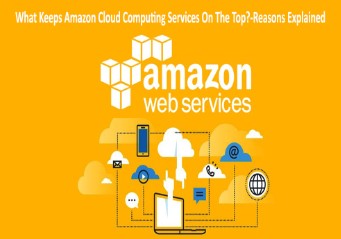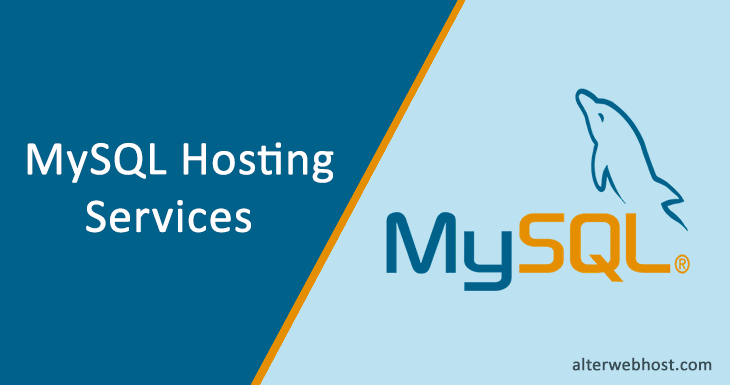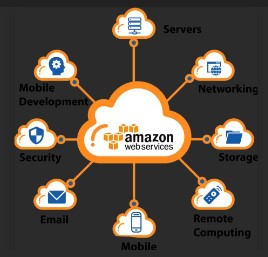Amazon Cloud Hosting

Unveiling the Cloud: Demystifying Amazon Web Services (AWS)
The once-opaque realm of cloud computing has shed its nebulous cloak, revealing a vibrant ecosystem teeming with possibilities. At the forefront of this digital renaissance stands Amazon Web Services (AWS), a celestial tapestry woven from a dizzying array of computing, storage, database, and networking services. For businesses of all sizes, migrating to AWS isn’t simply a technological leap; it’s a transformative odyssey, propelling them into a boundless expanse of agility, scalability, and innovation.
From Brick-and-Mortar to Sky-High Servers: Why Migrate to the Cloud?
Shackled by the earthly constraints of physical servers, businesses often find their ambitions tethered to rigid infrastructure. Growth spurts become agonizing bottlenecks, security vulnerabilities lurk in shadowy corners, and disaster recovery plans resemble hastily scribbled wish lists. Ascending to the cloud liberates businesses from these terrestrial limitations. AWS becomes their celestial command center, orchestrating a symphony of virtual servers (EC2 instances) that dance to the rhythm of their ever-evolving needs. Gone are the days of frantic server provisioning; with AWS, scaling resources up or down is as effortless as adjusting the focus of a celestial telescope.
Scaling Your Ambitions, Not Your Servers: The Flexibility of AWS
Imagine a world where your infrastructure bends to your will, morphing and adapting to meet the ever-shifting tides of your business. With AWS, this fantastical vision becomes a tangible reality. Whether you’re navigating seasonal traffic surges for your e-commerce platform or launching a global marketing campaign, AWS scales seamlessly alongside your ambitions. No more are you burdened with overprovisioning for peak periods or clinging to underpowered servers during lulls. The elasticity of AWS empowers you to pay only for the resources you utilize, transforming your infrastructure into a nimbly responsive extension of your digital dreams.
A Buffet of Services: Exploring the Diverse AWS Landscape
Step into the celestial marketplace of AWS, and prepare to be dazzled by a smorgasbord of services catering to every imaginable digital need. From the EC2 instances that form the beating heart of your virtual servers to the S3 storage vaults that safeguard your data like celestial dragons hoarding priceless gems, AWS offers a cornucopia of solutions. Relational databases like RDS dance the waltz with structured data, while DynamoDB, the nimble acrobat of the cloud, effortlessly tames the unruly beast of unstructured information. To ensure seamless communication within your digital kingdom, AWS networking services weave an intricate web of virtual connections, guaranteeing the smooth flow of data across your celestial domain.
EC2 Explained: Spinning Up Virtual Servers in a Flash
EC2 instances are the celestial workhorses of the AWS stable. These virtual servers, readily provisioned in mere minutes, form the bedrock of your cloud infrastructure. Whether you require the computational might of a fire-breathing dragon (think high-powered CPUs and ample RAM) or the nimble agility of a celestial scout (modest resource requirements for smaller workloads), EC2 offers a diverse fleet of instances to perfectly suit your needs. And once your virtual servers are up and running, scaling them up or down is as simple as whispering a cosmic incantation – a testament to the unparalleled flexibility of AWS.
S3 Storage Symphony: Storing Your Data Across the Globe
The S3 storage service is the celestial vault of AWS, safeguarding your data with the vigilance of a cosmic guardian. Imagine a vast network of geographically distributed data centers, each one a secure fortress housing your digital treasures. With S3, this is not a fantastical dream, but a tangible reality. Upload your data to S3, and it whisks it away to its secure haven, replicating it across multiple data centers for unparalleled redundancy and disaster recovery. Accessing your data is just as effortless; S3’s intuitive interface allows you to retrieve your celestial bounty from any corner of the globe, ensuring seamless availability and accessibility.
Database Duets: RDS and DynamoDB for Structured and Unstructured Data
The world of data, much like the cosmos itself, can be both elegantly structured and chaotically unstructured. For the former, RDS, the relational database maestro of AWS, conducts a symphony of order. This managed service effortlessly provisions and scales relational databases, ensuring the smooth flow and organization of your structured data. But what of the unruly masses of unstructured information? Fear not, for DynamoDB, the nimble acrobat of the data world, steps onto the celestial stage. This NoSQL database service gracefully handles the ever-growing mountains of unstructured data, from social media feeds to sensor readings, allowing you to extract valuable insights from the digital chaos.
Networking Nirvana: Connecting Your Cloud Infrastructure Seamlessly
Just as constellations rely on intricate networks of stars to communicate, your cloud infrastructure thrives on seamless connectivity. AWS networking services weave a celestial web of virtual private clouds (VPCs), connecting your cloud resources with the outside world. With VPCs, you can create isolated virtual networks that are tailored to your specific needs. With AWS’s suite of networking services, you can easily control how your cloud resources communicate with each other, with the internet, and with your on-premises infrastructure.
Benefits of Choosing AWS Cloud Hosting
The benefits of choosing AWS cloud hosting are numerous and far-reaching. Here are just a few of the key advantages:
- Cost optimization: AWS offers a pay-as-you-go pricing model, so you only pay for the resources you use. This can help you save significant money on your IT costs, especially if you experience spikes in traffic or demand.
- Scalability: AWS is highly scalable, so you can easily add or remove resources as needed. This gives you the flexibility to adapt to changing business requirements without having to invest in new hardware or software.
- Security: AWS offers a wide range of security features and services to protect your data and applications. This includes encryption, access control, and intrusion detection.
- Global reach: AWS has a global network of data centers, so you can reach your customers and users no matter where they are located.
- Innovation: AWS is constantly innovating, adding new services and features to meet the needs of businesses of all sizes. This gives you access to the latest technologies and capabilities.
AWS for Different Use Cases
AWS can be used for a wide range of use cases, including:
- Web hosting: AWS is a popular choice for hosting websites and web applications. It offers a variety of services to meet the needs of businesses of all sizes, including EC2 for virtual servers, S3 for storage, and RDS for relational databases.
- Mobile app hosting: AWS can also be used to host mobile applications. It offers a variety of services to support mobile app development and deployment, including EC2, S3, and Lambda.
- Big data: AWS is a powerful platform for big data analytics. It offers a variety of services to store, process, and analyze large amounts of data, including S3, Redshift, and Elastic MapReduce.
- Artificial intelligence (AI) and machine learning (ML):** AWS is a leading provider of AI and ML services. It offers a variety of services to build, train, and deploy AI and ML models, including SageMaker, Rekognition, and Translate.
Getting Started with AWS
AWS offers a variety of resources to help you get started, including:
- Free tier: AWS offers a free tier that includes a variety of services, so you can experiment with AWS without having to pay anything.
- Documentation: AWS provides comprehensive documentation for all of its services.
- Training: AWS offers a variety of training options, including online courses, instructor-led training, and certification programs.
Advanced Strategies for AWS Cloud Hosting
As you become more familiar with AWS, you may want to explore some advanced strategies for optimizing your cloud infrastructure. Here are a few ideas:
- Automate your cloud operations: Automation can help you save time and effort by automating repetitive tasks, such as provisioning resources, managing costs, and monitoring performance.
- Optimize your costs: There are several ways to optimize your cloud costs, such as using reserved instances, spot instances, and right-sizing your resources.
- Secure your cloud infrastructure: Security is a critical consideration for any cloud deployment. AWS offers a wide range of security features and services to help you protect your data and applications.
- Innovate with AWS: AWS is constantly innovating, adding new services and features to meet the needs of businesses of all sizes. Stay up-to-date on the latest AWS developments so you can take advantage of the latest technologies and capabilities.
The Future of AWS Cloud Hosting
The future of cloud computing is bright, and AWS is at the forefront of this innovation. AWS is constantly innovating, adding new services and features to meet the needs of businesses of all sizes. As AWS continues to evolve, it will become an even more powerful and versatile platform for businesses of all sizes.
Conclusion
AWS cloud hosting is a powerful and versatile platform that can help businesses of all sizes achieve their goals. With its wide range of services, flexible pricing, and robust security features, AWS is the perfect choice for businesses that want to take advantage of the latest cloud technologies and capabilities.





